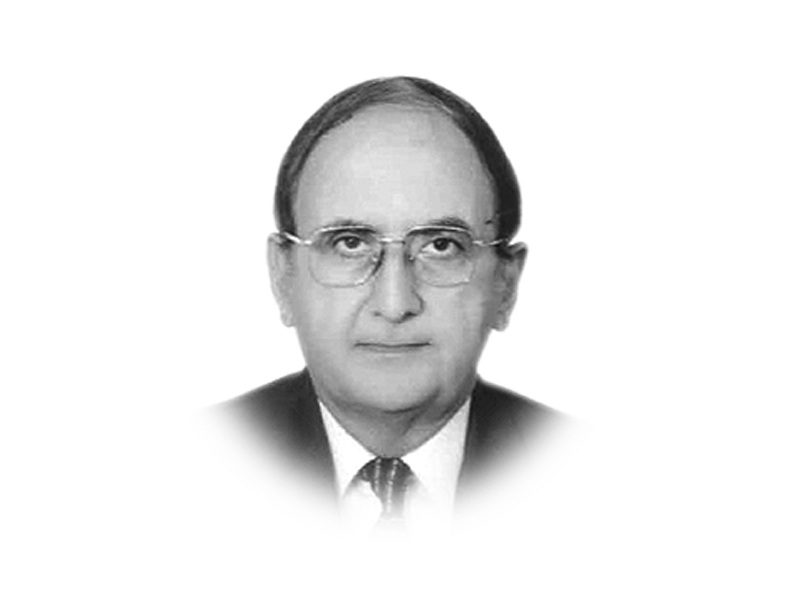
These military courts will function for two years. The civilian federal government will decide the cases to be submitted to military courts for adjudication. The provincial governments can also recommend cases to the federal government that it could then send on to the military courts. Three factors have led political leaders to adopt this extraordinary approach to deal with internal terrorism. First, the distress caused by the terrorist attack on the school in Peshawar created a broad-based consensus in Pakistan to adopt a firm approach to fight the Taliban and other militant groups.
Second, the army was already pursuing a tough military action against the Pakistani Taliban and their local and foreign allies based in North Waziristan. It launched another security operation in Khyber Agency and pursued limited action in other tribal areas. The success of these security operations increased the confidence of the people in the military’s capacity to control terrorism. This was the major reason that the setting up of military courts did not face much opposition at the popular level or in the parliament.
In the immediate aftermath of the Peshawar killings, the army top command took the lead in prodding the leaders of the ruling PML-N and other political parties to set up military courts because it was convinced that the existing anti-terrorism courts and special courts had not managed terrorism cases in an expeditious manner. The straight-forward statements of the army chief at the All-Parties Conferences in December 2014 and January 2015 had a sobering impact on political leaders, who agreed to set up military courts.
Third, the civilian government led by Prime Minister Nawaz Sharif showed no interest in making a commitment towards improving civilian legal and judicial procedures to expeditiously deal with terrorism cases. It lacked determination to do so and readily agreed to the army’s demand for military courts and consented to greater engagement of the army in the management of internal security affairs both, at the federal and provincial levels.
The army corps based in the provincial capitals are now part of the new joint civil-military arrangements for dealing with internal security issues. According to official reports, about 10,000 army personnel are helping the federal and Punjab governments in internal security matters. Army troops have been mobilised to provide security to a number of prisons where activists of various Taliban groups or other violent sectarian organisations are lodged. Civilian authorities are expected to seek more help from the army for internal security.
The current reliance on the army for controlling terrorism is a double-edged sword. It can strengthen the civilian democratic political arrangements or totally dislodge them. The setting up of military courts for two years for countering terrorism gives some breathing space to the civilian government. It needs to use this time to upgrade its investigation, prosecution and judicial arrangements, as well as implement all the agenda items of the National Action Plan (NAP) for countering terrorism. If this happens, the civilian government will retrieve the political initiative. If it fails to strengthen civilian institutions and processes for countering terrorism, the future of the current civilian democratic system will become more uncertain.
The major dilemma faced by the Nawaz government is that some religious parties sharing religious denominational identity with the Taliban or having some sympathies for militancy are contesting the notion of military courts. The JUI-F, led by Maulana Fazlur Rahman, has criticised the constitutional amendment which, in his view, has a strong bias against religious groups. The Jamaat-e-Islami has also maintained a similar position. Maulana Fazlur Rahman has threatened to launch street protests if the perceived anti-religion bias of the amendment is not done away with. He will, however, find it difficult to obtain the support of all religious parties for a sustained agitation. Actually the Maulana and other religious activists are upset by the agenda items of the National Action Plan that envisage monitoring of madrassas, mosques and related religious-cum-political activities. Most religious parties derive major support from these sources and often summon madrassa students to show their street power. These groups are expected to use their formal and informal links with the ruling PML-N to convince the federal government not to pursue the agenda items in the NAP pertaining to religious activism, madrassas, mosques and published religious material.
If the Nawaz government yields to these pressures, it will be viewed as another evidence of its incapacity to manage religious and militant groups. This will strengthen the perception in society that the army will have to take the lead for implementing all agenda items of the NAP for elimination of terrorism. Such a perception will further erode the credibility of civilian institutions and processes.
Published in The Express Tribune, January 12th, 2015.
Like Opinion & Editorial on Facebook, follow @ETOpEd on Twitter to receive all updates on all our daily pieces.
COMMENTS (6)
Comments are moderated and generally will be posted if they are on-topic and not abusive.
For more information, please see our Comments FAQ




1730959638-0/trump-(19)1730959638-0-165x106.webp)







@Ishrat Salim I absolutely concur.
Nice perspective and very thought provoking article.
@MSS: Let us be very clear without any ambiguous terms that our political dispensation have conceded that they have failed & hence abdicated their responsibility on to the shoulder of the Armed forces on a pretext of " extra ordinary situation '. This extra ordinary situation is not new. This term is an scapegoat to camouflage shortcomings of the govt & the political class put together. First, they put 8000 convicts death penalty on HOLD, then when it is lifted, see the numbers of these convicted accused go to the gallows. Many of them have appealed & the drama goes on ? thanks to the present laws which is enabling these convicts to get their convictions delayed on one pretext or another. Instead of strengthening the existing laws, there is no seriousness on the part of the govt & lawmakers to strengthen the hands of the judiciary....in this case ATCs the best example, which has been misused for other reasons than what it was formed for - to try cases of terrorism not IK & TuQ.....
The great sounding NAP has no provision to try others in act of terrorism but religious outfits & sects - what about those Baluchis ? those who attack in the name of TTP, they do not belong to any religious outfits & sects, so they will not be tried by the military courts ? I mean, what is this NAP all about ? ...it is just a " white wash " just to pass the high passion period & NACTA, if the govt was that serious, till today has not met even once, so why was it formed ? The political dispensation & the govt has very conveniently outsourced their responsibility to the Armed forces. The Armed forces can only go after the terrorist, but the main root of the problem has to be addressed by the govt, which is missing in NAP. So, military solution only is not an answer for a long term solution. This abdication of responsibility as per constitution & as per act of Parliament has proved that these lawmakers want to be called " political martyr " when military action proves a failure, which it will, because the govt & political parties have already become controversial due to reservations by JUI F & JI....
Unless Gen. Shareef is really sincere in his efforts to rid the country of terrorism, it is power by other means.
I think it is too early to jump the gun on the "success" of military operations in the tribal areas. I think the civil government is as sincere as the army and needs no "prodding" in this regard. It is them who have to face up to people come 2018. The shenanigans of the Maulanas were predictable and they have as much "informal" links with the PML-N as they have with the establishment. Failing to implement the plan will lie on both the establishment and the PML-N equally.
Wishful thinking on Mr. Askari's part.
"Most religious parties derive major support from these sources and often summon madrassa students to show their street power."
The generals on the other hand often summons not madrassah students but overt sectarian activists on the streets to demonstrate their power.
"This will strengthen the perception in society that the army will have to take the lead for implementing all agenda items of the NAP for elimination of terrorism."
What gives Mr. Askari the idea that the public or the actual low ranking man on the ground will consent to follow the anti-Masjid/Madrassah part of NAP that seems to have been fabricated in some secularist ivory tower?